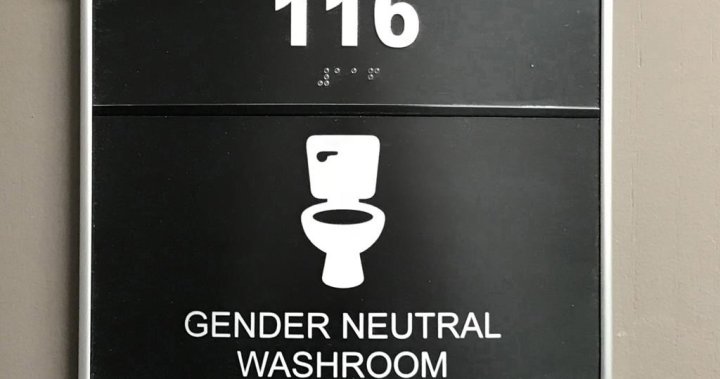Quebec has implemented new rules prohibiting the construction of shared gender-neutral bathrooms in schools, effective immediately. The government directive mandates that all new bathrooms and locker rooms in schools be designated for either boys or girls. However, school service centres must ensure that any student who wishes to use an individual universal bathroom has access to one. Education Minister Bernard Drainville issued this directive in response to a high school in Rouyn-Noranda making plans to provide gender-neutral bathrooms starting in the 2024-25 school year. The government has also established an expert panel to provide recommendations on how Quebec can better accommodate gender diverse individuals.
The ban on shared gender-neutral bathrooms in Quebec schools has been enforced to prioritize wellbeing, privacy, and respect for private life. Minister Drainville expressed confidence in the decision despite the ongoing work of the expert panel, indicating that he does not expect the panel to advise against the new rule. The government’s directive reflects a push towards inclusivity and accommodation for all students, despite potential backlash from those advocating for gender-neutral facilities. It remains to be seen how this measure will impact schools in Quebec and how it will be received by the public and education stakeholders.
The decision to ban shared gender-neutral bathrooms highlights the ongoing societal conversation surrounding gender identity and inclusivity in public spaces. Quebec’s move may face criticism from individuals and groups advocating for gender-neutral facilities as a means of fostering a more inclusive and supportive environment for all students. The government’s stance on this issue indicates a prioritization of traditional gender binaries in school settings, potentially excluding or alienating gender diverse individuals. This decision may prompt further discussion and debate on the best practices for accommodating diverse gender identities in educational institutions.
The government directive in Quebec raises questions about the responsibilities of schools and education officials in creating inclusive environments for all students. While the ban on shared gender-neutral bathrooms reflects a commitment to privacy and wellbeing, it also raises concerns about the exclusion of gender diverse individuals from accessing safe and comfortable facilities. As schools navigate these new regulations, they may need to consider alternative solutions to meet the needs of all students, including the provision of individual universal bathrooms or other accommodations. Education stakeholders and advocates for inclusivity will continue to monitor the impact of these changes on students and school communities.
The implementation of the ban on shared gender-neutral bathrooms in Quebec schools underscores the ongoing challenges and debates surrounding gender identity and inclusivity in educational settings. The decision reflects a commitment to privacy and respect for traditional gender norms, but it may also perpetuate exclusion and stigma for gender diverse individuals. Education Minister Bernard Drainville’s directive is a response to a specific case in Rouyn-Noranda, but its implications extend to schools across the province. As schools adapt to these new regulations, they will need to prioritize inclusivity and support for all students, regardless of gender identity, to create safe and welcoming environments for learning and growth. The expert panel established by the government will play a crucial role in shaping future policies and practices related to gender diversity in Quebec schools.
Overall, Quebec’s ban on shared gender-neutral bathrooms in schools signals a shift in policy and practice towards traditional gender designations. While the government directive aims to address concerns about wellbeing and privacy, it also raises questions about inclusivity and support for gender diverse individuals. As the province moves forward with these new regulations, education stakeholders and advocates for gender equality will continue to monitor the impact on students and school communities. The ongoing dialogue about gender identity and inclusivity in educational settings will likely shape future policies and practices to ensure that all students feel safe, respected, and supported in their learning environments.


